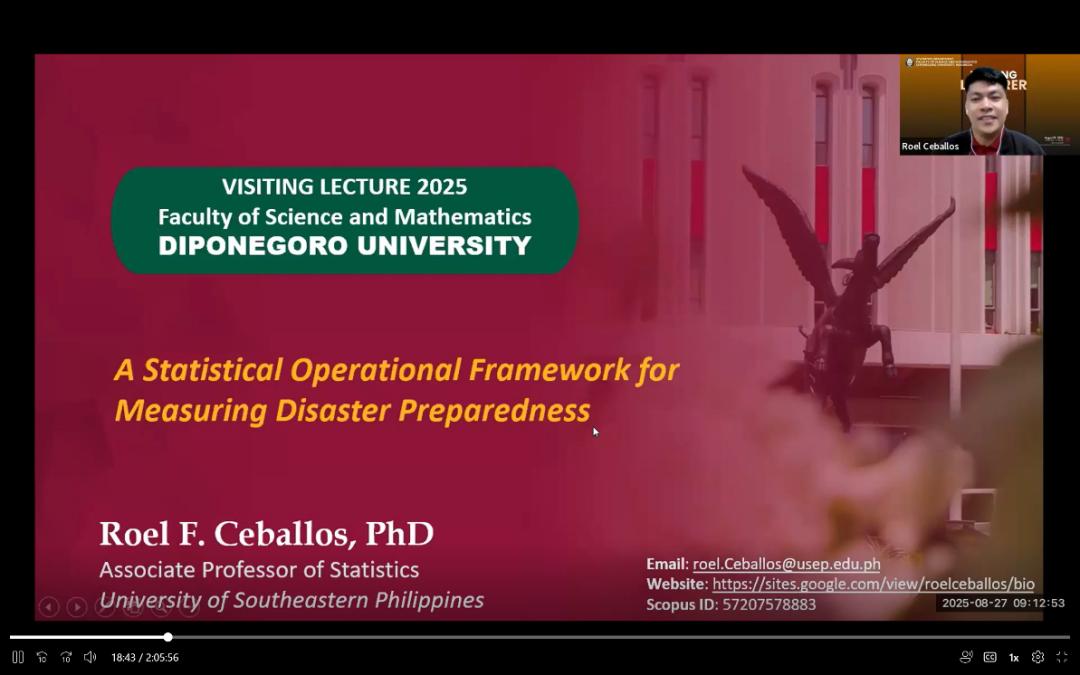The Department of Statistics at the Faculty of Science and Mathematics (FSM) of Universitas Diponegoro (UNDIP) hosted an Online Visiting Professor titled “Statistical Operational Framework for Measuring Disaster Preparedness” on Wednesday, August 27, 2025. This event took place virtually through Zoom, with Dr. Roel F. Ceballos from the Department of Mathematics and Statistics, University of Southeastern Philippines (USeP), Philippines, as the main speaker. The visiting professor was moderated by Alan Prahutama, S.Si, M.Si, Ph.D., a Statistics lecturer at FSM UNDIP.
In his session, Dr. Roel emphasized the importance of measuring disaster preparedness through a statistical framework. Using the Philippines as a case study, a country highly vulnerable to natural disasters, especially typhoons, Dr. Roel explained that while natural disasters can now be predicted more accurately, community preparedness needs further improvement to minimize casualties. He highlighted the need for a comprehensive and consistent approach to measuring disaster preparedness across regions.
Dr. Roel also connected this research to several Sustainable Development Goals (SDGs), including SDG 1 (No Poverty), SDG 11 (Sustainable Cities and Communities), and SDG 13 (Climate Action). He stated that effective disaster preparedness is not only about saving lives but also preventing affected communities from falling into poverty.
Using methods such as the Analytical Hierarchy Process (AHP) and Factor Analysis for Mixed Data (FAMD), Dr. Roel introduced the Disaster Preparedness Index (DPI), which categorizes disaster preparedness in the Philippines into three levels: High preparedness, Moderate preparedness, and Low preparedness. Each category has its specific characteristics, where high preparedness regions are marked by strong local government, adequate infrastructure, and well-organized disaster risk management systems. In contrast, low preparedness areas are vulnerable to disasters, with poor infrastructure and underdeveloped disaster mitigation systems.
The results of this research are expected to provide valuable recommendations for the government to enhance disaster preparedness, such as strengthening Local Disaster Risk Reduction and Management Offices, improving critical infrastructure, and regularly conducting disaster drills. These measures aim to optimize disaster preparedness, allowing communities to respond more effectively when disasters strike. The Faculty of Science and Mathematics (FSM) UNDIP, through the Department of Statistics, remains committed to supporting statistical-based research that contributes positively to addressing global challenges, including disaster preparedness, to create a more resilient and disaster-ready society.

